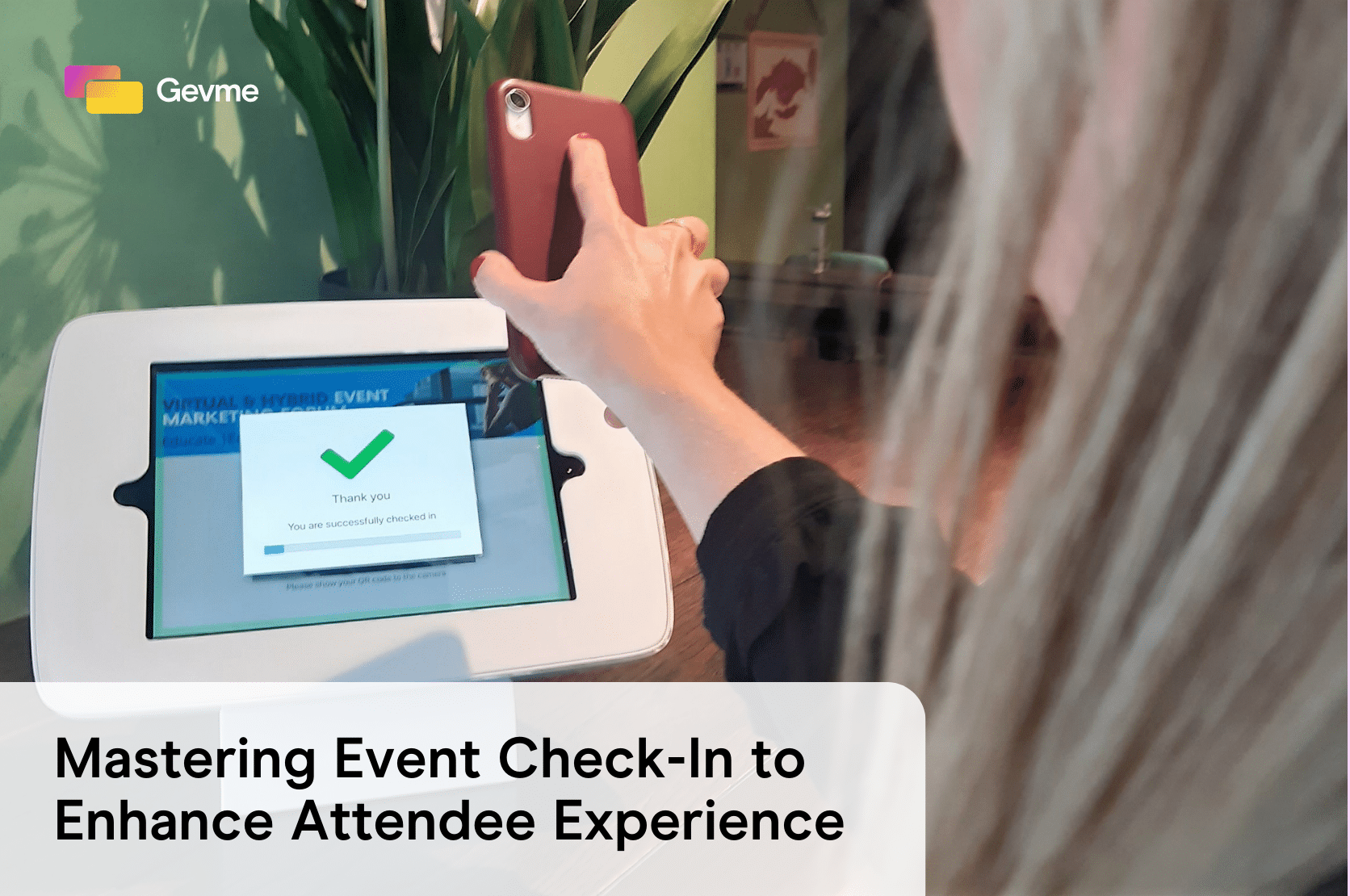In the world of event planning and management, event check-in stands as a crucial component. Beyond merely ensuring attendees enter the venue, efficient event check-in serves as the initial touchpoint that sets the tone for the entire event experience.
The significance of a seamless event check-in process cannot be overstated. It’s not just about logistics; it’s about the attendee journey and the impression it leaves.
Picture a scenario where attendees are greeted with long queues, frustrated staff, and cumbersome registration procedures upon arrival. Such an experience not only tarnishes the event’s reputation but also dampens attendee engagement. Conversely, a well-executed event check-in process fosters a positive atmosphere. Attendees feel valued and welcomed, setting the stage for meaningful interactions, learning experiences, and networking opportunities throughout the event.
In this blog, we delve into the significance of event check-in, exploring its various types and their respective advantages and limitations. Furthermore, we’ll delve into Gevme’s cutting-edge check-in services, designed to streamline operations and elevate event experiences.
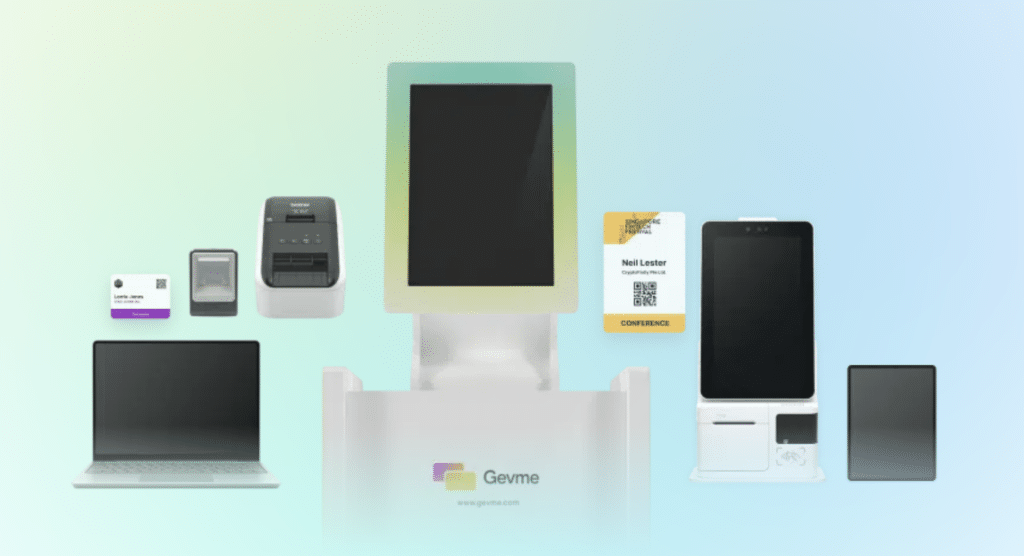
The Importance of Event Check-In
Verification
Event check-in is indispensable for ensuring the security and safety of all attendees and participants. By accurately verifying attendees’ identities and credentials upon entry, event organizers can mitigate potential security risks and maintain a controlled environment conducive to a positive experience for all.
Enhanced Experience
Furthermore, the event check-in process plays a crucial role in effectively managing attendee data, serving as a gateway to valuable insights. By capturing essential information during check-in, such as demographics, preferences, and attendance patterns, organizers can tailor their event offerings to better align with attendees’ needs and expectations, ultimately enhancing their overall experience.
Networking
Additionally, event check-in serves as a catalyst for facilitating networking opportunities among attendees. By providing a structured environment where attendees can connect and interact with one another based on shared interests or affiliations.

Studies have shown that events with streamlined check-in experiences consistently yield higher attendee satisfaction ratings, leading to increased attendee retention rates, positive word-of-mouth referrals, and enhanced brand reputation for event organizers.
Manual Check-in VS Self Service
When considering the check-in process for events, organizers often weigh the advantages and limitations of manual check-in versus self-service kiosks.
Manual check-in entails attendees interacting directly with event volunteers for verification and entry. This method fosters personalized interaction and the human touch inherent in manual check-in can enhance the overall attendee experience, particularly at smaller events or those with VIP segments where personalized attention is valued.
However, manual check-in has its drawbacks. It can be time-consuming, especially at larger events with high volumes of attendees, leading to long wait times and potential delays. Additionally, the manual entry of attendee information increases the likelihood of errors or discrepancies, requiring diligent staff oversight to ensure accuracy.
On the other hand, self-service kiosks offer a streamlined approach to check-in, allowing attendees to check themselves in quickly and conveniently. This method prioritizes efficiency by reducing reliance and minimizing wait times for attendees. Moreover, self-service kiosks provide flexibility, enabling attendees to check in at their own pace and convenience, bypassing queues and accessing event areas promptly.
Despite their efficiency and flexibility, self-service kiosks also have their limitations. self-service kiosks may encounter technical glitches or connectivity issues, disrupting the check-in process and causing frustration among attendees.
In conclusion, both manual check-in and self-service kiosks offer unique advantages and limitations that event organizers must consider when selecting the most suitable check-in method for their events. Factors such as attendee demographics, event size, and logistical considerations play a crucial role in determining the optimal approach to ensure a smooth and efficient check-in process.
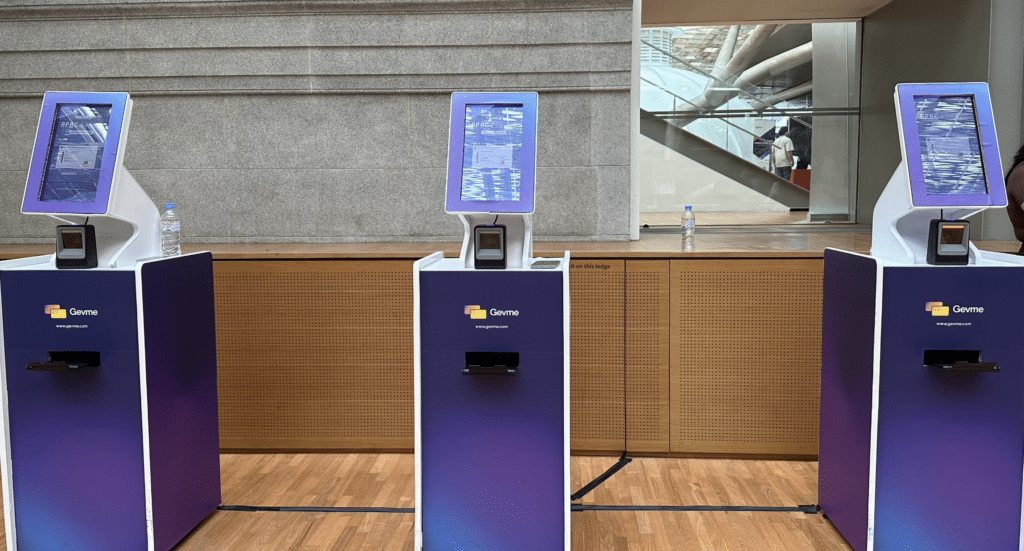
GEVME’s Check-In Kiosks and Hardware
Gevme provides a comprehensive range of check-in kiosks and hardware solutions designed to elevate the event check-in process and enrich attendee experience.
Model S
Model S is Gevme’s flagship self-contained standing kiosk renowned for its hassle-free setup and durability. Crafted from environmentally friendly paperboard, the Model S boasts a lightweight yet sturdy design.
Model S offers an array of features tailored to optimize the check-in experience.. Equipped with a built-in paper badge printer, attendees receive their credentials instantly, while the brandable magnetic sticker allows event organizers to personalize kiosks with their branding.
The kiosk’s sustainable materials align with environmental goals, while wireless connectivity and a lightweight build ensure flexibility in placement and setup, requiring only a single powerpoint for operation.
Additionally, advertisement opportunities enable event organizers to showcase sponsors or promotional content, further enhancing engagement.
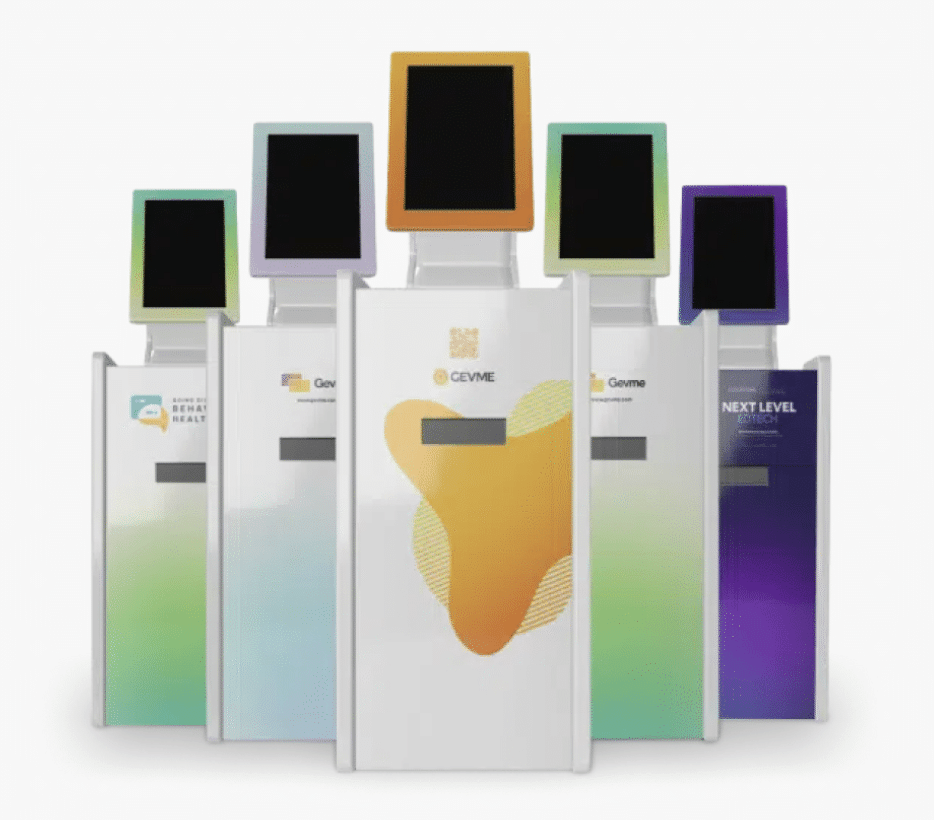
Model T
Gevme’s Model T tabletop kiosk is designed with versatility and convenience in mind, making it an ideal choice for events with limited space. Despite its compact size, the Model T has a range of features tailored to optimize the check-in process and enhance attendee experience.
The self-serve functionality empowers attendees to check themselves in swiftly and independently, reducing wait times and minimizing congestion at entry points. The wireless connectivity of Model T further enhances its versatility and ease of use. Event organizers can position the tabletop kiosk in various locations without the constraints of wired connections, allowing for flexibility in setup and configuration.
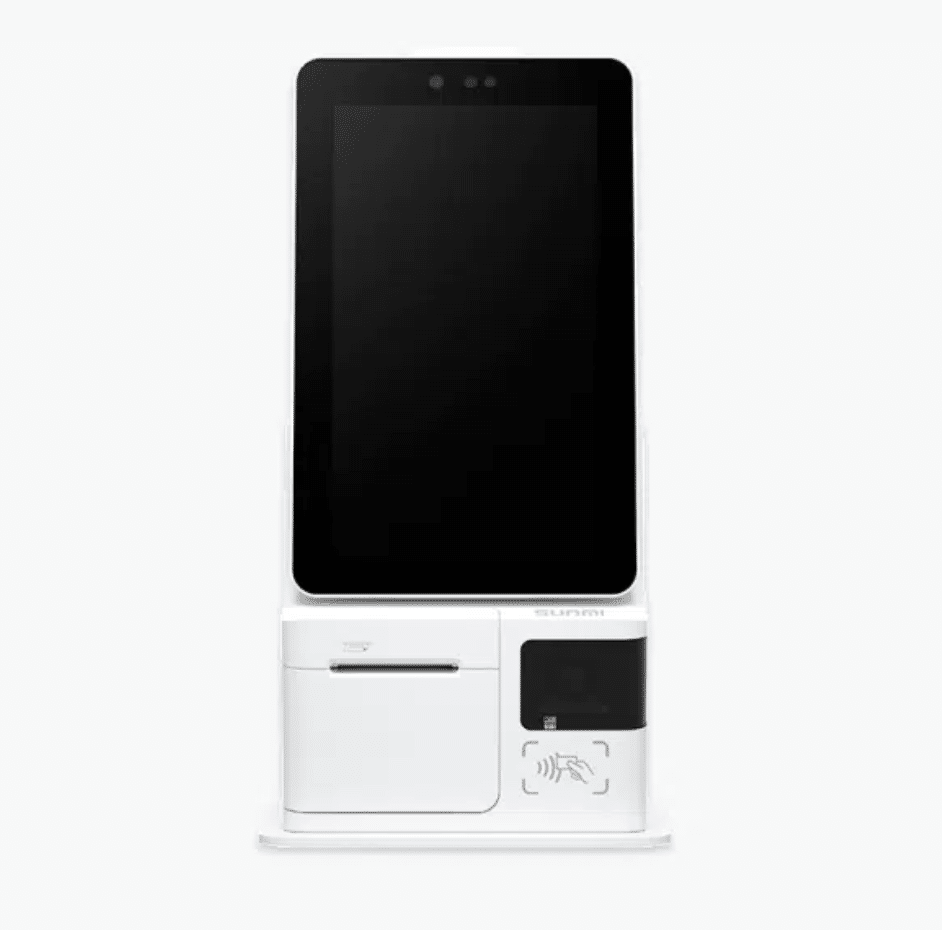
Counter Set
For event organizers seeking flexibility and customization, the Counter Set option provides a versatile solution. Utilizing laptops, printers, and scanners, the Counter Set enables customizable configurations tailored to specific event needs. With features such as self-serve functionality, contactless check-in, wireless connectivity, printer and scanner versatility, and flexible configuration options, the Counter Set offers event organizers the ability to adapt setups to different environments and layouts, ensuring a tailored approach to check-in processes.

Overall, Gevme’s range of check-in kiosks and hardware solutions empowers event organizers to streamline operations, enhance attendee satisfaction, and ensure the success of their events.
